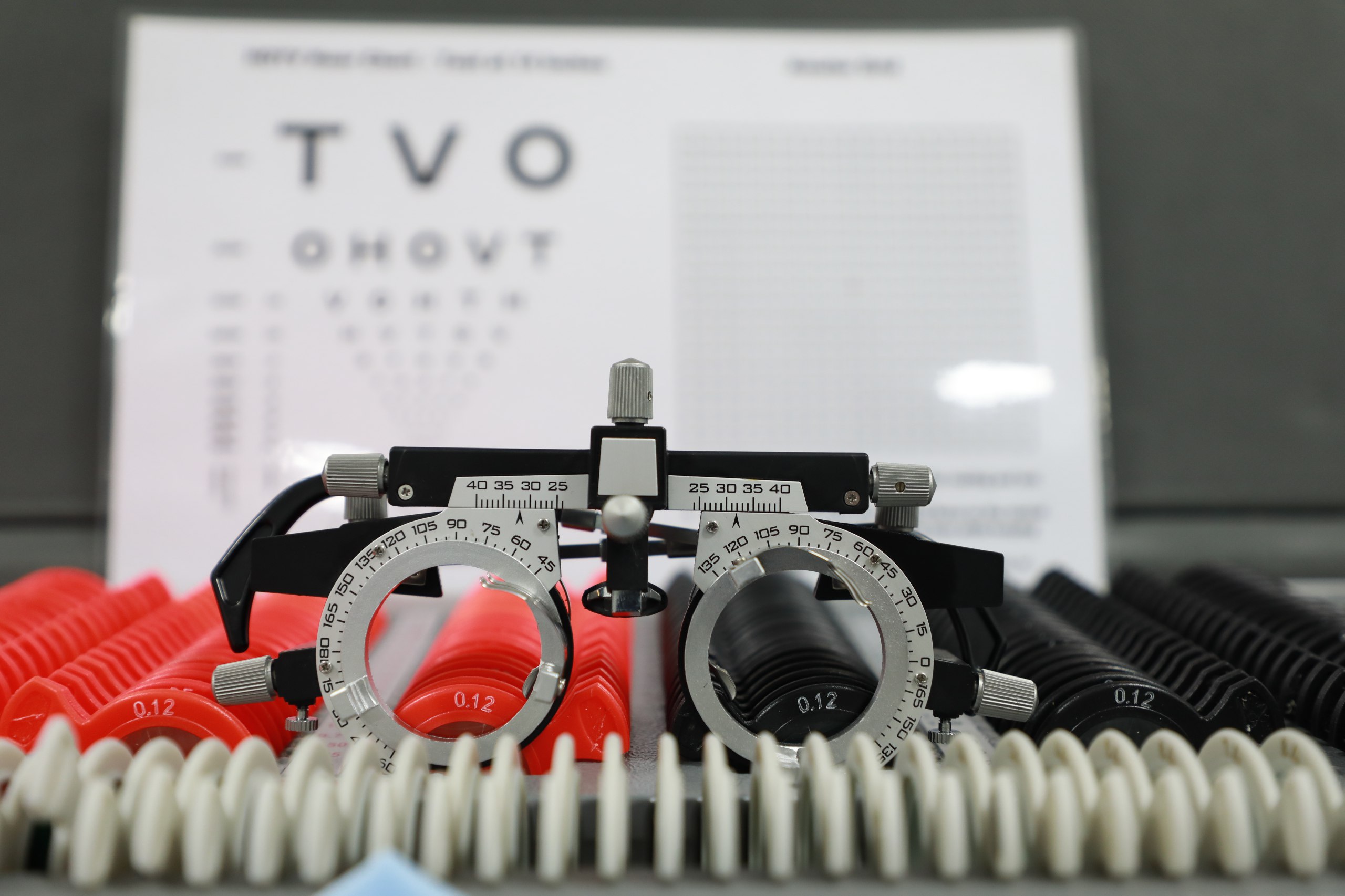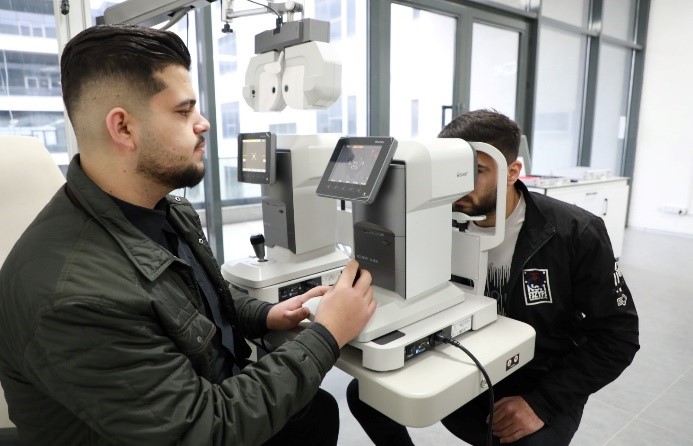The eye, which is often referred to as the window to the soul, is an exquisitely complex and beautiful organ. It enables us to perceive the world in all of its vibrant colors and varied forms. However, the delicate nature of the eye necessitates specialized care and comprehension, which is where optometry comes in. This four-year programme is meticulously designed to provide students with a thorough understanding of optometry's science, technology, and art. It is not only about diagnosing and correcting vision but also about improving people's lives, from the young child who struggles to read to the elderly who require assistance with daily tasks.
Our curriculum consists of both rigorous academic coursework and clinical training. We explore topics such as ocular anatomy, optics, and visual perception in addition to patient communication, ethics, and business management. Beyond the classroom and laboratory, we emphasize the significance of empathy, integrity, and community involvement. Students will have the opportunity to work under the supervision of experienced optometrists and vision scientists throughout the programme. In addition to providing a variety of research opportunities, community service projects, and international collaborations, we ensure that students' education extends beyond textbooks.
As a profession, optometry recognises the unique needs of each patient. It's about a child getting their first clear vision, a painter overcoming age-related vision loss, or a driver avoiding accidents because of better vision. Relationships, self-awareness, and collective progress are at the heart of this endeavor. We strive for academic and personal excellence in our Bachelor of Optometry programme.


| 1 | Awarding Institution | Universiti Teknologi MARA (UiTM) |
|---|---|---|
| 2 | Teaching Institution | Qaiwan International University |
| 3 | Programme Name | Bachelor of Bachelor Optometry (HONS) |
| 4 | Final Award | Bachelor of Bachelor of Optometry (HONS) |
| 5 | Programme Code | HS246 |
| 6 | Professional or Statutory Body of Accreditation | Ministry of Higher Education |
| 7 | Language(s) of Instruction | English |
| 8 | Mode of Study (Conventional, distance learning, etc) |
Conventional |
| 9 | Mode of Operation (Franchise, self-govern, etc) | Franchise |
| 10 | Study Scheme (Full Time/Part Time) |
Full Time |
| 11 | Study Duration | Minimum: 4 years - Maximum: 6 years |
| # | Classification | Credit Hours |
|---|---|---|
| 1 | Compulsory modules | 20 credits |
| 2 | Fundamental Modules, Including Basic Sciences | 22 credits |
| 3 | Professional modules to fulfill requirements of discipline |
70 credits |
| 4 | Industrial training modules Including clinical placement |
28 credits |
| 5 | Optional modules Electives | 2 credits |
| Total Credit Hours to Graduate | 142 credit hours | |
The Programme Educational Objectives (PEO) of the Bachelor of Optometry are:
PEO (1). Optometrists who apply concepts, theories, and knowledge to evaluate, diagnose, and manage visual system conditions, which include the dispensing of ophthalmic lenses, contact lenses, optical appliances, and vision therapy in providing comprehensive vision care to the health industry.
PEO (2). Optometrists who display practical competency in performing clinical optometry skills and demonstrate interpersonal skills, social responsibility, and teamwork with other related professions and community, by means of effective communication.
PEO (3). Optometrists who utilize a broad range of digital technologies and numerical abilities to competently analyze and validate clinical optometry findings.
PEO (4). Optometrist who demonstrate leadership skills committed towards continuous improvement, display entrepreneurial skills while adhering to the ethical and professional practices in the organization and society.
| # | PLO | |
|---|---|---|
| 1 | Apply concepts and theories in the field of optometry in prescribing and dispensing glasses, contact lenses, optical rehabilitation devices, and vision therapies. | |
| 2 | Employ rational clinical reasoning skills and an evidence-based approach in identifying and interpreting problems to make professional decisions associated with optometry. | |
| 3 | Perform practical skills in eye examination, diagnosis, and optometric management safely and effectively | |
| 4 | Display good teamwork, effective social responsibilities, and collaborative skills related to the organization and society. | |
| 5 | Demonstrate effective communication by conveying information/ideas/reports clearly and professionally at the workplace and in social interaction. | |
| 6 | Display information communication technology (ICT) skills in utilizing various digital applications to enhance the optometry practice. | |
| 7 | Derive skills to utilize numerical, visual, and graphical data in order to interpret clinical optometry findings. | |
| 8 | Exhibit effective leadership skills in managing a professional optometric field. | |
| 9 | Display information management and lifelong learning skills as continuous improvement effort independently. | |
| 10 | Demonstrate managerial and entrepreneurial skills in producing a well-rounded professional optometrist. | |
| 11 | Adhere to the standard values, ethics, moral and professional code of conduct. | |
QIU © All Rights Reserved | by QIU IT-Office | @ 2022 QIU University